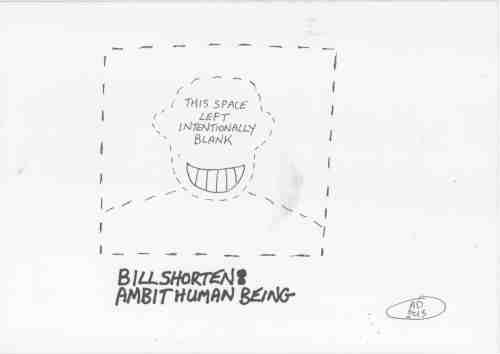David Marr, Faction Man: Bill Shorten’s Path to Power (Quarterly Essay 59)
Some trivia to start with: Timothy Conigreve, whose memoir Holding the Man has been made into a deeply affecting film, attended the same secondary school as Bill Shorten: the Jesuits’ Xavier College in Melbourne. Congreve performed in a school production of Romeo and Juliet in the late 1970s; Shorten staffed the box office for a Romeo and Juliet in the mid 1980s.
David Marr’s Quarterly Essay doesn’t mention Tim Conigreve or Romeo and Juliet, but it paints a portrait of a man who, having functioned brilliantly behind the scenes, now stands centre stage. It also reminds us that Tony Abbott is another Jesuit old boy, and invokes the Jesuit ideal of ‘a man for others’ of Shorten, a phrase that is at the heart of a brilliant piece on Abbott by Katherine Murphy. A Jesuit education can clearly lead to very different outcomes.
Marr asks about Bill Shorten the same question he has asked about Kevin Rudd, George Pell and Tony Abbott in previous essays: who is he? The question has a particular flavour in Shorten’s case because, as Marr says, he is ‘a man from nowhere’: ‘Where Tony Abbott is disliked quite viscerally now that he is known, Shorten is suspect because he isn’t.’ One of Andrew Denton’s cartoons in the fabulous Going Down Swinging Longbox (which I’ll blog about soon, and which I assume it’s OK to quote here), makes a similar point:
To treat politics as if it is all about personalities is to debase the public discourse. But it really does help to know something about the people who are vying for the top political job, about where they come from and – now that politicians are so intent on telling voters in marginal seats what they want to hear – what we can figure out about their agendas.
Marr’s essay gives the background – one of twins, the son of a university lecturer mother and a sailor turned small businessman father, Shorten educated in Catholic schools, including Xavier, joined the ALP while at school and threw himself into student politics at university. The story gets interesting – and incredibly intricate – when young Bill becomes an organiser for the AWU and enters what Marr calls ‘the dark world of Victorian politics’. Shorten quickly mastered the politics of the ALP right, proved to be a brilliant recruiter who, as he took on leadership, reanimated the ‘shot duck’ union.
The history is interspersed with vignettes that are closer to the present moment: Shorten’s successful management of potentially rancorous differences at the ALP National Conference this year; Shaun Micallef’s skewering of his sub-Keating wit, his ‘zingers’; his time in the witness box in Tony Abbott’s politically motivated Royal Commission; a list of his nicknames, from Lot’s Wife‘s Bill ‘Career Move’ Shorten in 1987 to Tony Abbott’s Barnacle Bill in 2014.
The picture that emerges is a man who has a phenomenal talent for union politics. Bill Shorten has been a master of the deal – all the hard work, sweet talk and hard-man tactics, betrayal and compromise happen behind the scenes. His role in the manoeuvring to replace Kevin Rudd as Prime Minister with Julia Gillard and then to replace Julia Gillard with Kevin Rudd was in that same mode, though more visible and not a good look (Marr doesn’t mention it, but the captions of newspaper photographs of him at that time called him, paradoxically, a ‘faceless man’.) Now that he is seeking to become Prime Minister, he is in new territory: this competition has to happen in the open – out of the box office and onto the stage, perhaps. When the essay was written, Tony Abbott was his opponent. With the infinitely more personable Malcolm Turnbull in the other corner, Shorten’s challenge remains much the same. This essay helps us to see who he is and the world that he comes from: he needs to find a way to show himself in a way that the electorate will take to him.
Speaking at Gleebooks last night, David Marr said this was the hardest writing assignment of his life, because ‘the terrain is so unspectacular’. Maybe, but there will be a federal election in the next 15 months, and Bill Shorten’s conservative Labor style and substance will be part of some interesting times.
—–
Up the back there are 40 pages of correspondence about the previous Quarterly Essay – that is to say, some discussion of IS, Iraq and Syria that doesn’t bristle with terms like ‘death cult’, ‘baddies and baddies’ or even ‘evil’, but is all about military strategy. I’m a pacifist, but I love the way these people can argue their cases.



